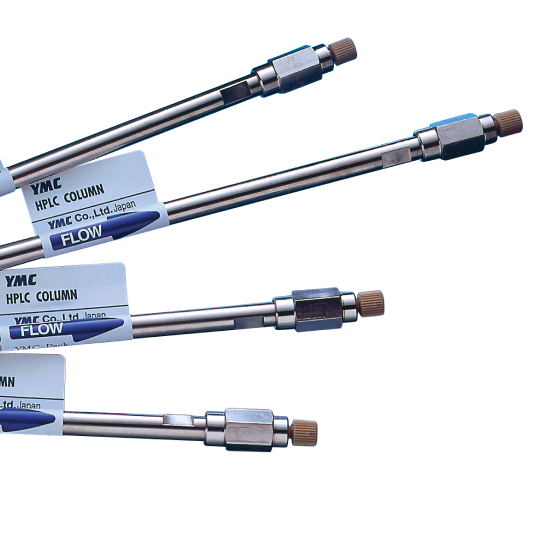Analytical Chromatography
Analytical chromatography
Used to determine the presence and/or the concentration of analyte(s) in a sample, analytical chromatography is a cornerstone of any industry reliant on chemistry. In analytical chromatography, a stationary phase is bonded to the support particles, such as silica packed inside a column. The outcome of moving a mobile phase through the stationary phase produces a chromatogram as a visual output of the chromatograph. Typically, the mobile phase is pumped through the packed bed at pressures between 50 and 350 bar.
Peaks representing the various constituents in the mobile phase offer the chromatographer a “picture” of what the solution contains and the probable concentration of the individual molecules present. As opposed to preparative chromatography where the objective is to purify a useful amount (milligrams or grams) of a single compound, analytical chromatography is used to identify individual components for purposes of quality control, discovery, or other qualitative analyses. The eluents in analytical chromatography may not even be collected or retained.
Experts in the field of analytical chromatography have long considered YMC a premier supplier of phases and columns for use in the analysis of nearly any liquid chemical solution. YMC provides HPLC columns, analytical columns, ion exchange chromatography columns/packing materials for purification of biopharmaceuticals, and chiral chromatography columns/packing materials, which can separate a wide range of compounds.

Application Search
Use our extensive Applications Search page to mine a dynamically growing collection of over 350 YMC-produced application notes.
The data can be searched by any combination of several variables, including sample classification, compound name (including partial names), and column parameters.
